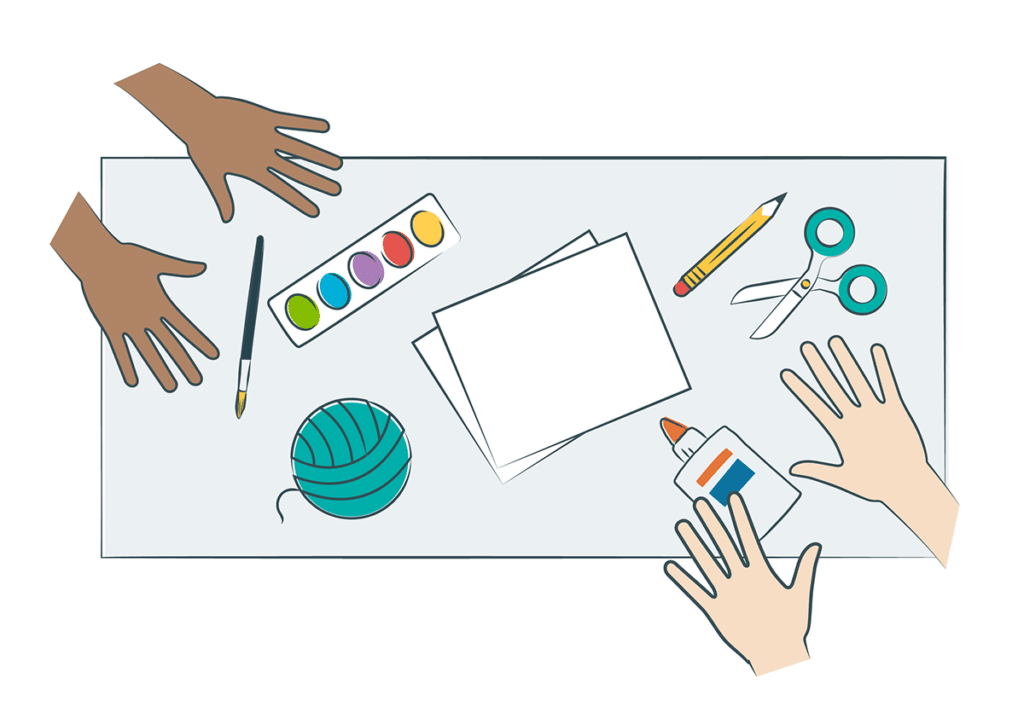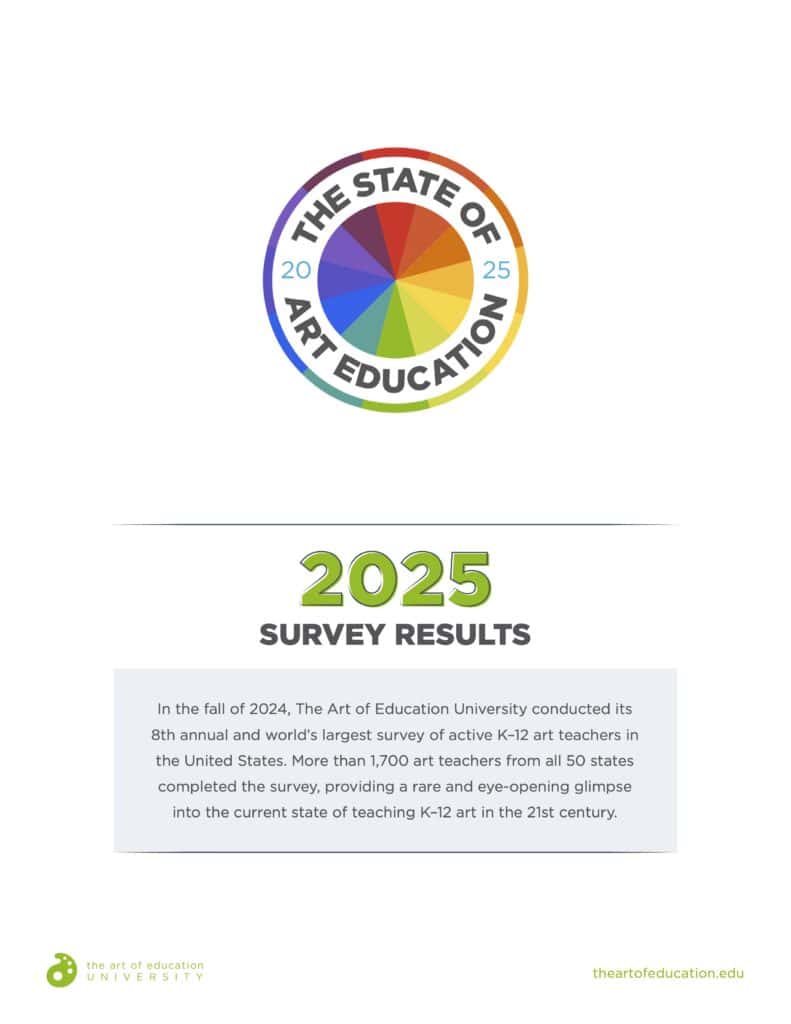In a world where everything screams for our attention, it can be challenging for art teachers to know what to truly focus on in the art room. In between filling endless glue bottles and mounting sky-high piles of artwork, art teachers’ time and attention are valuable! From AI to Gen Alpha, every topic in art education seems important. Let’s make the most of your art teacher energy and make it count— refresh your professional and personal art education practices with a few key areas.
Elevate your teaching and personal artmaking practices with the latest in the field of art education!
The Center for the Advancement of Art Education (CAAE) unites art teachers to create what’s next to further the field of art education. The CAAE gathered valuable information by surveying more than 1,500 art teachers in the annual State of Art Education Survey. Take the findings below to stay up-to-date in the field and give you a fresh drive in your teaching practice and personal artmaking practice.
Don’t miss these four ways to push the needle forward in your professional art teacher practice.
1. Foster critical thinking skills.
The majority of art teachers are applying teaching strategies from the Studio Habits of Mind and discipline-based, choice-based, and design-thinking approaches. This is in line with 43% of administrators who are prioritizing critical thinking and problem-solving skills in visual art curriculums, both skills in high demand in today’s workforce.

Boost your students’ critical thinking with these three resources:
2. Share your knowledge!
Art teachers are well-educated, with more than half (56%) possessing a graduate degree. Art teachers are also generous—consistently willing to lend a helping creative hand when needed. Another way to give back to your art education community is to share your expertise and experiences with other art teachers!

Here are five steps to start giving back:
- Find what you’re already good at and what makes you sparkle!
- Connect with other art teachers in The Art of Ed Community by joining discussions and attending events.
- Find a mentor to learn from and find a mentee to invest in.
- Present your knowledge and wisdom at the next NOW Conference.
- Apply for the MEd degree in Curriculum and Instruction with a specialization in Instructional Leadership in Art Education to drive meaningful impact in the visual arts.
3. Tackle challenging student behaviors with finesse.
Every year, it seems like behaviors in the art room get more and more challenging. 2024 was no different with behavior management ranking as the number one hurdle in the art room. From students running around the studio to angry parents and apathetic teenagers and ever-changing lingo—there are many ways to meet these behaviors with professionalism and grace.

Bookmark these innovative ideas to add to your classroom management toolkit:
Be the first to know about fresh behavior management tips and tricks by subscribing to the weekly newsletter, joining art teachers just like you in The Art of Ed Community, and following along on your favorite social media platforms.
4. Harness your background in other disciplines.
Art teachers are a multi-talented crew, with more than one-third (36%) of art teachers having prior experience teaching other disciplines, from music to pre-K to career tech! Use your background and connections to bring cross-curricular lessons to your students, all while keeping art the main focus. Collaborating with other teachers helps students to see how interrelated all subjects truly are and it can decrease your workload.

Find joy in your personal artmaking practice with these two next steps.
1. Participate in hands-on workshops.
Hands-on workshops are always a crowd favorite at any art education conference or professional development day! Art teachers love the opportunity to make art with their colleagues and learn through play. 55% of art teachers crave more relevant professional development and 79% prefer hands-on workshops.
If this describes you, check out The Art of Ed Community’s events! In the monthly Art Club, learn from experts, develop new skills, and stay up-to-date with the newest information in the field. Join Pop-Up Studio for a laid-back hour making art with other community members. All events are free for community members, so sign up and head to Upcoming Events to RSVP!

2. Discover a new medium!
One of the best things about art teachers is our growth mindset, especially when it comes to conquering new mediums, techniques, and processes. Nothing is more fun and rewarding than trying a new sparkly art supply and then bringing that contagious enthusiasm and novelty to your students.
Half of art teachers (45% of all art teachers and 52% of new art teachers) are very interested in seeking personal artistic growth. Mediums of interest include digital art, printmaking, fibers, and ceramics. If one of these art teachers is you, listen to Ask the Experts on your favorite podcast platform or enroll in a Studio course for a deeper dive with an expert instructor.

Still, art teachers’ favorite thing is to watch our students grow in their creative ability! There is nothing that brings joy quite like seeing a student’s eyes light up with understanding or delight at an artwork they poured their heart and soul into. This is the fuel that keeps our magical art teacher energy so high and propels us to improve our teaching and artistic practices. Refresh your passion for and expertise in art education with the key areas above so you can apply what’s next in your art room for you and your students.
As an art teacher, what are you looking forward to in 2025?
How will you apply what’s next in art education to your teaching and artmaking practices?
To chat about art education with other art teachers, join us in The Art of Ed Community!
Magazine articles and podcasts are opinions of professional education contributors and do not necessarily represent the position of the Art of Education University (AOEU) or its academic offerings. Contributors use terms in the way they are most often talked about in the scope of their educational experiences.


